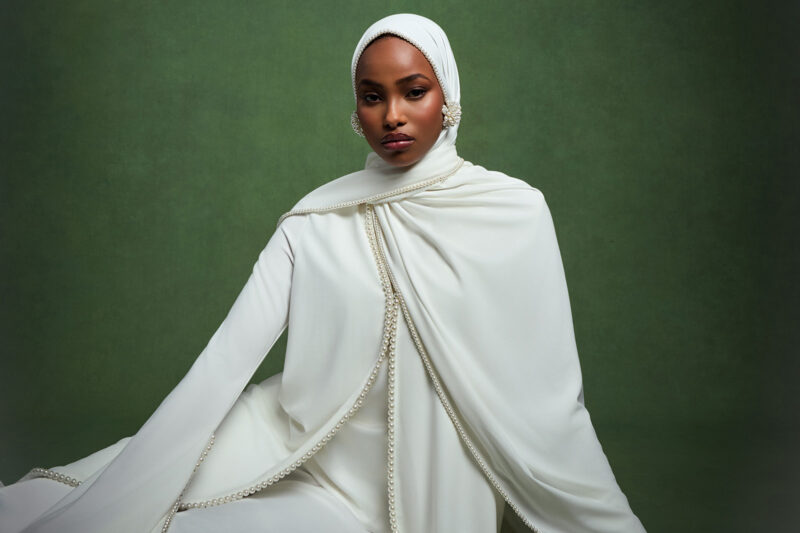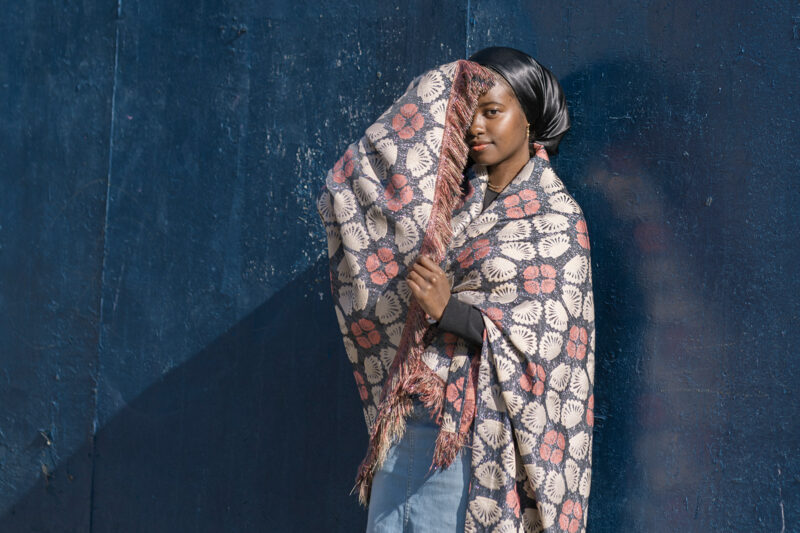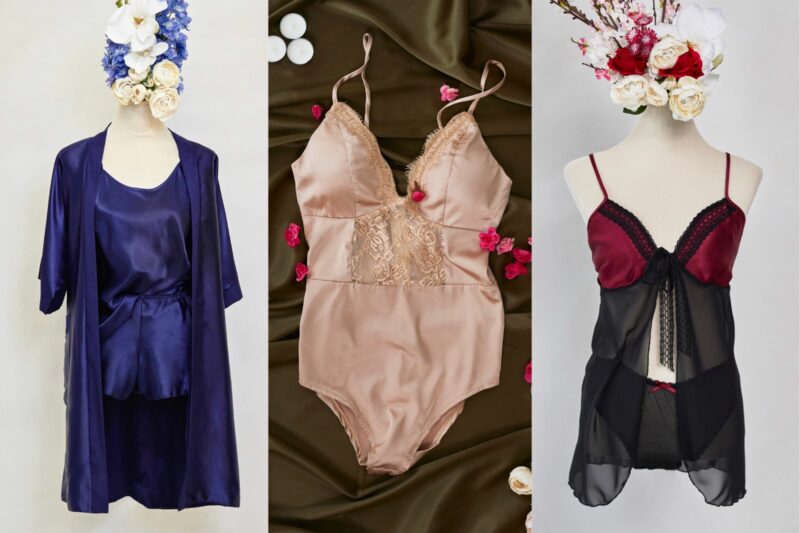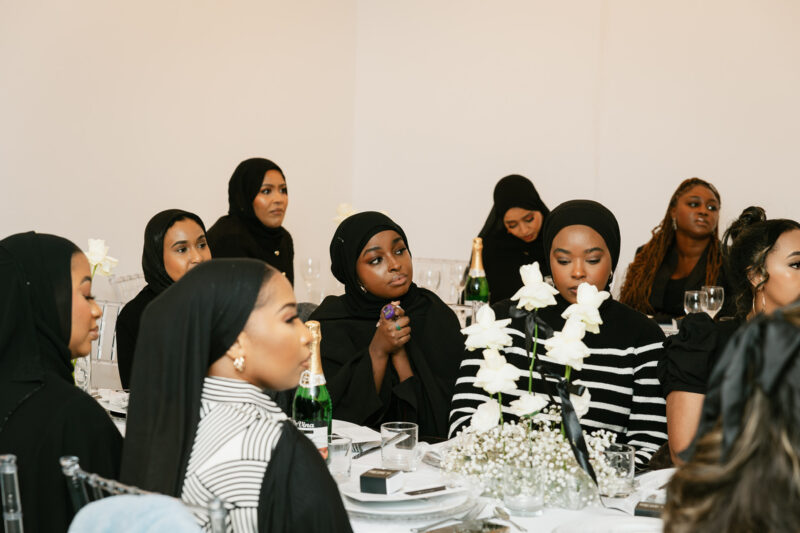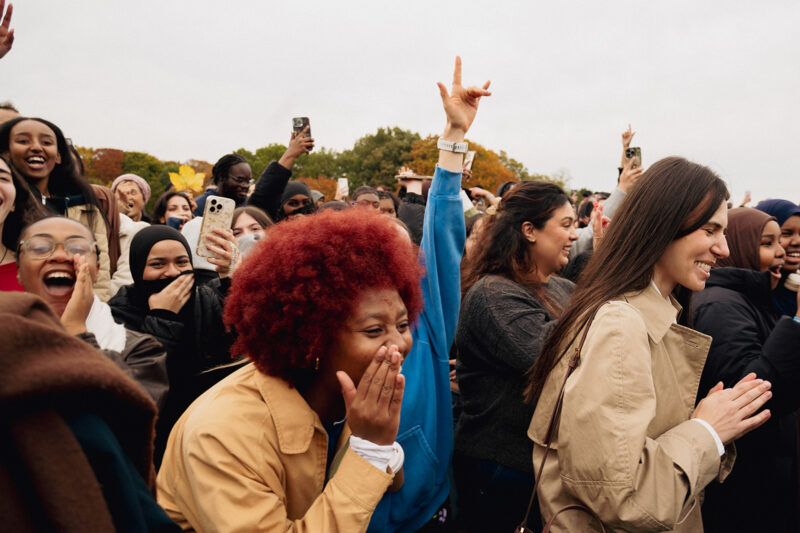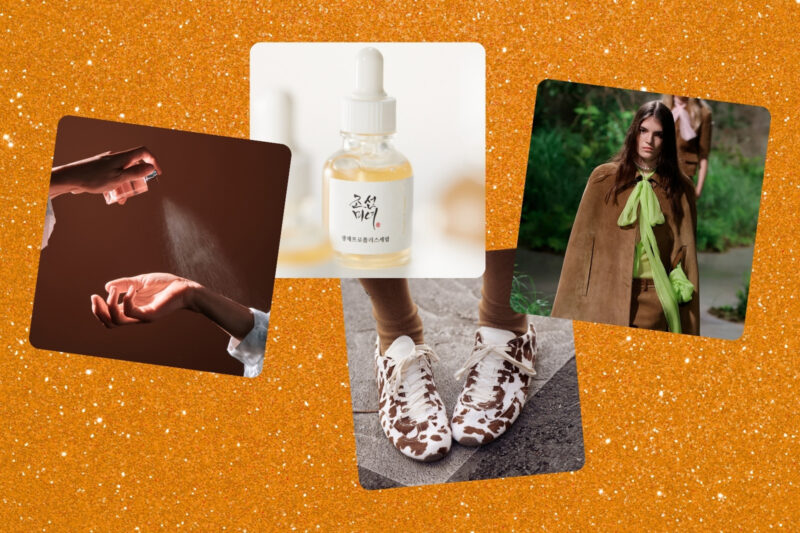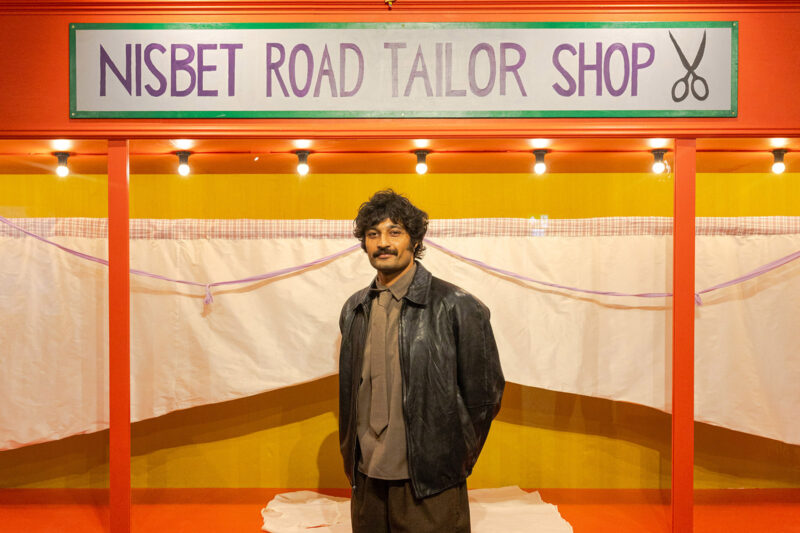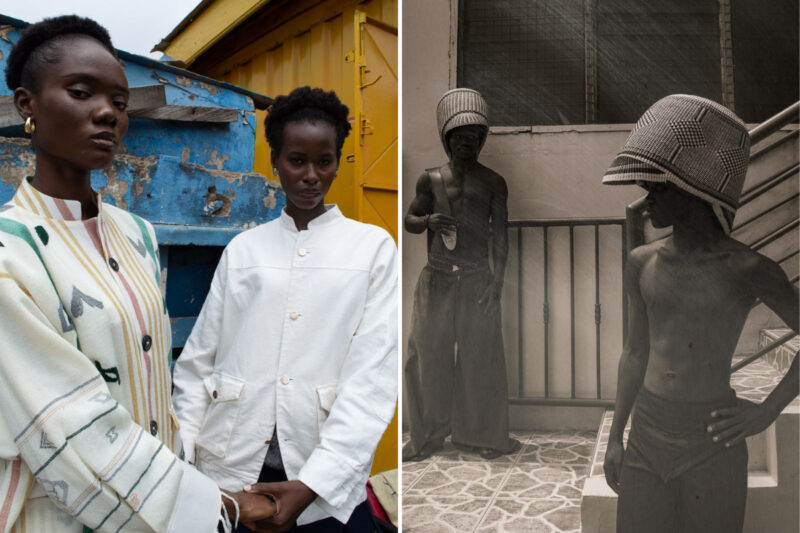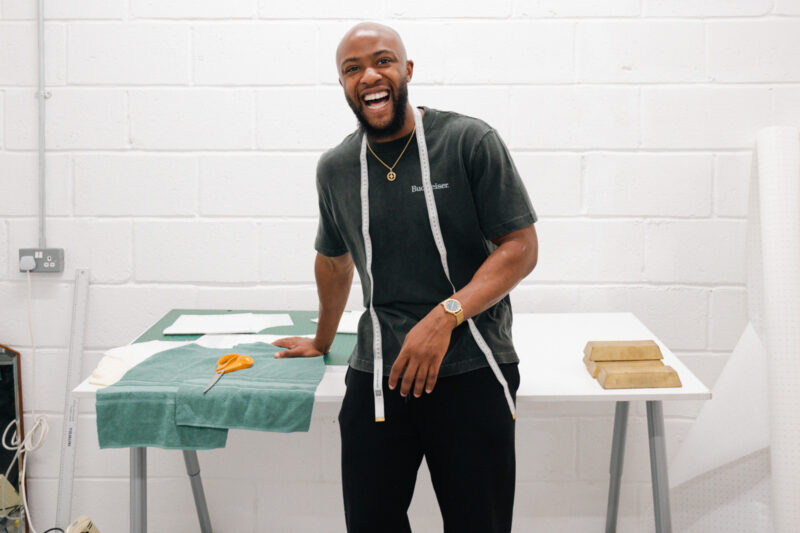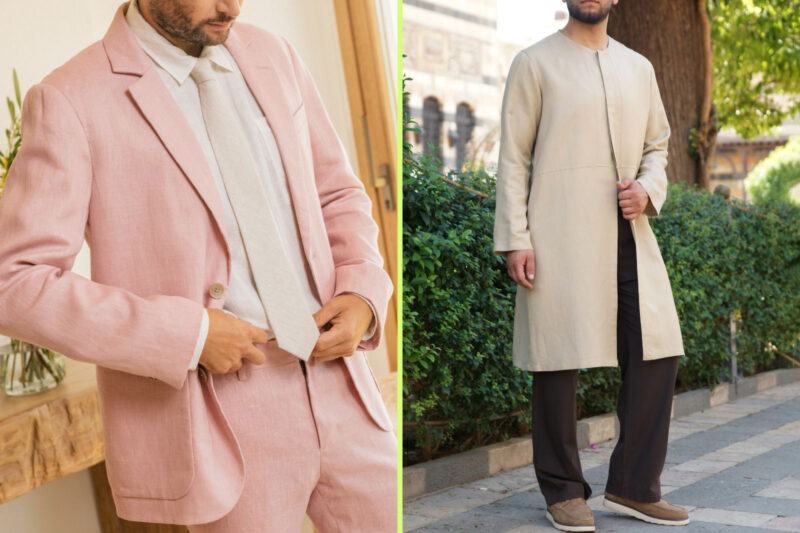Inside the burgeoning abaya industry
From established family businesses to a new wave of social media-savvy designers, this traditional garment has become the hottest thing in modest fashion
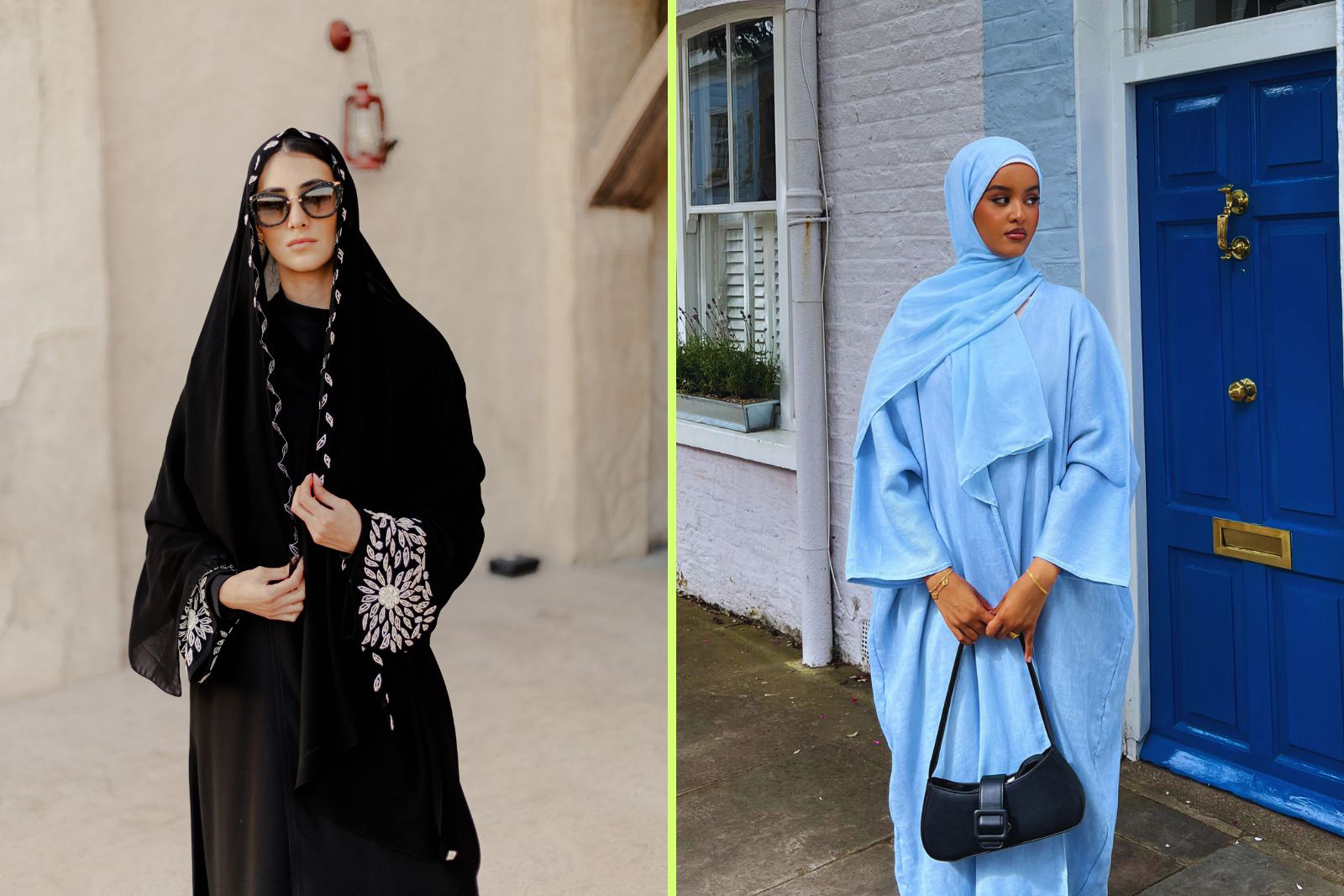
Just off the bustling Wilmslow Road in Rusholme, Manchester, lies Abayas Boutique, a popular family-run clothing store. Inside, the walls are lined with racks of flowing women’s gowns designed in-house and specially made by a team of five tailors in Dubai. The back of the store features rails filled with headscarves of various materials, from chiffon to jersey, in every colour imaginable.
Owner Altaf Chaudhry, 46, is busy placing hijabs on hangers as a steady stream of Saturday afternoon customers begins to arrive. One woman says she has travelled from London after being told about the shop by her cousin. A couple come in and the wife combs through the rails, asking her husband’s opinion as she tries on different options.
The abaya is a long, robe-like overgarment that has been worn by women in the Middle East and other parts of the Muslim world for centuries. Traditionally black and simple in design, it is enjoying a surge in popularity and a subtle, more colourful makeover among younger Muslim women in the UK and Europe. Now, long-established shops such as Abayas Boutique are being joined by a new generation of social media-driven brands offering their own takes on the style.
“Abayas have become more mainstream,” says Chaudhry’s daughter Ammatullah, 27. “Before, you used to have to wait until a trip to Saudi Arabia or the UAE to get them, but now, they’re just so much more accessible.”
As Chaudhry pulls a couple of the gowns off the rack to show off their detailed stitching and tailoring, it’s clear that he takes great pride in the clothes he sells. Ammatullah is responsible for most of the brand’s designs, drawing inspiration from the Arab world, designer fashion shows and celebrity red-carpet looks.
“Our abayas are more catwalk, English styles,” says Chaudhry. “We don’t make what’s on trend. What we do is very uniquely us and everything is about quality — that’s our USP. We don’t follow fashion, we make it.”
During the late 1980s, Chaudhry built a career designing costumes for rising Mancunian musicians, including the Happy Mondays and Lisa Stansfield, but switched to making abayas in 1995. To showcase his products, he travelled up and down the country for several years, attending Islamic conferences with his family. By the time he and his wife, Shahida, began selling online in 2009, they had already built up a loyal customer base. In 2011, they opened their first physical store and trade has gone from strength to strength ever since.
After nearly 30 years in the business, the Chaudhrys have earned an enviable reputation, with customers travelling to Abayas Boutique from across the UK and online buyers flocking to its website from as far away as the US and India. In the past few years, sales have gone up rapidly, which Chaudhry attributes to a new generation of customers.
Now, from Manchester to Dubai and beyond, abayas have become a major component of modest fashion. An industry report valued Muslim spend on apparel and footwear at £243bn in 2022 and expected it to reach £327bn by 2027.
Shujon Omer, 18, is one of many young Muslim women who have embraced the trend. I met the soon-to-be first year dentistry student browsing the rails of Abayas Boutique for new outfits to start her first term at university.
“I can wear abayas for dressier events, but they’re also something I can throw on and wear on top of a basic outfit,” she says.
‘They’re so elegant. You can be modest and look great at the same time. It’s culture and religion colliding, and I don’t have to compromise.’
While Abayas Boutique relies mostly on its brick-and-mortar store and website for sales, TikTok and Instagram have brought the abaya to a much wider audience. Hashtags such as #abayastyle and #abayafashion accompany millions of posts, and influencers such as Dubai-based Amal Mousa and Fatma Husam model and review the latest trends for thousands of followers.
Launched in 2021, Manchester-based Sumayah is one of the new wave of labels harnessing the power of social media to sell its affordable, Khaleeji-style abayas. Founded by former parliamentary assistant Sumayah Saadi, it has become one of TikTok’s top modest fashion brands, with almost 200,000 followers and a physical shop just a five-minute walk from Abayas Boutique.
Iram Ahmed, 25, is the woman behind the London-based abaya brand Mood. “I think people like the luxurious look and designs of our abayas,” she says. “Social media has also made it so fashion trends aren’t limited to one area. They go much further. We’re seeing content from other countries and it influences the UK as well.”
Ahmed discovered the abaya on a trip to Saudi Arabia a few years ago and found the garment to be both comfortable and practical. On her return to London, though, she was disappointed with the range available.
“I couldn’t really find what I wanted, so I started getting my abayas made by a tailor,” she says. “I thought, ‘If I’m doing this for myself, I’m sure there are other people who would like them as well.’ That’s when I decided to expand and start a business.”
Launched with Ahmed’s sister in 2023, Mood has grown steadily and is already building an international clientele, selling to customers in Denmark, Sweden and France.
While the growing number of abaya brands clearly present some competition to businesses such as Chaudhry’s, he believes there is room for everyone and sees a bright future for the whole industry.
“I went from making costumes for film and TV to making abayas and I’ve never looked back. I’m very happy and proud of our work,” Chaudhry says. “The abaya business is now a lifestyle. It’s both a religious and a fashion thing. People want to be more modest and look good at the same time.”
 Newsletter
Newsletter


